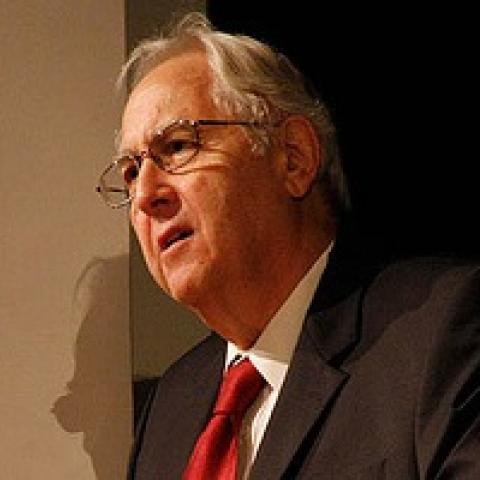The breaking news is all over. The United States and Russia are about to set up a Cold War-era type spy swap — exchanging some or all of the ten accused Russian spies held in the United States with Russians accused by the Putin government of spying for the West. The New York Times reports that one man in particular, Igor Sutyagin, was moved to Moscow from a hard labor Siberian prison to be prepared to be flown to Britain.
Sutyagin was arrested back in 1999 and accused of giving missile and nuclear sub secrets to a firm that was a CIA front. He pleaded innocent and has, for eleven years, refused to sign a confession of guilt — despite the conditions in which he was being held. To gain release, he now signed a confession. As the report explains:
He was told that if any prisoners on the list declined, the entire agreement would be voided, she said. "It was either this way, or they would create a life like hell for him," she said. "He was thinking of his relatives, of his children; he has two daughters. And that is why he accepted the offer."
She said Mr. Sutyagin had asked her to inform the media of the swap, to clarify that he had been compelled to sign the confession, as he did not want to be seen as a spy being traded for spies. "He wants to tell everybody that he never admitted his guilt, that he doesn’t consider his conviction legal, and he can unequivocally say that he was never a spy," she said.
For years, human rights groups monitoring Moscow have included Sutyagin in a list of those who were persecuted by the Russian government and intelligent services and who never had anything approximating a genuine trial. The Russian government, at the time of the arrests, was upset that many scientists, after the collapse of the Soviet Union, found work with foreign companies. Arresting many of them on grounds that they were spies was a good way to frighten off those who hadn’t yet signed on with Western firms.
At the time of the arrests, human rights organizations "criticized Mr. Sutyagin’s prosecution, saying it suggested a Soviet-style wariness of contacts between Russian scientists and foreigners on the part of the security services, rather than success in arresting a foreign agent." As another news report noted, "his case has been criticized by human-rights advocates and in some Western capitals as an example of Russia’s spy agencies railroading innocent specialists through a compliant court system."
Indeed, the forthcoming swap is another throwback to the 60s and 70s, when the Soviet regime swapped unwanted dissidents who were creating political turmoil at home with actual Soviet spies operating in the West. "‘We’re rolling back the clock,’ said Yuri Ryzhov, a former Russian ambassador and prominent academic who heads a commission that has defended scholars accused of treason. ‘It’s the 1970s now.’"
It is yet one more example of the Cold War-era so-called "moral equivalence," in which the Putin government equates innocent political offenders or those who get on the wrong side of the Russian government with actual Russian or Soviet spies who were genuinely seeking Western secrets, of either an industrial or military nature.
Both the Putin government and the Obama administration, however, are signing on to this charade. The Russians get back their would-be sleeper agents, while the United States avoids an embarrassing trial that might turn U.S. public opinion against rapprochement with Moscow. Obama can thus pretend that all is well in the American-Russian relationship and that he and Putin have left this little insignificant matter behind them. And when others try to point out that men like Sutyagin were never guilty of any real offense, Putin can point to his newly signed confession as evidence that he now admitted his guilt. The FBI will not have to reveal counterespionage tactics used to catch the ten, and what others have predicted would have been a "pall" over the relations between our country and Russia will have been avoided.
How sad that in our own time, the Obama administration is engaging in this immoral and cynical example of realpolitik.














